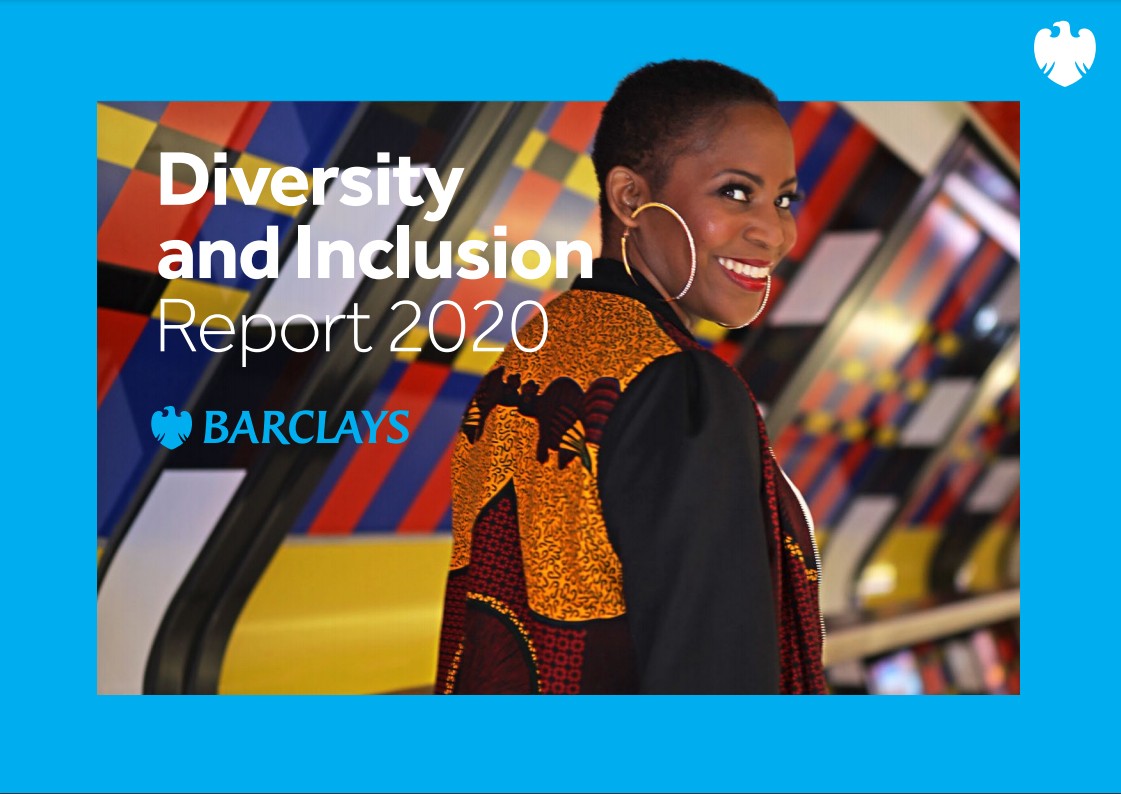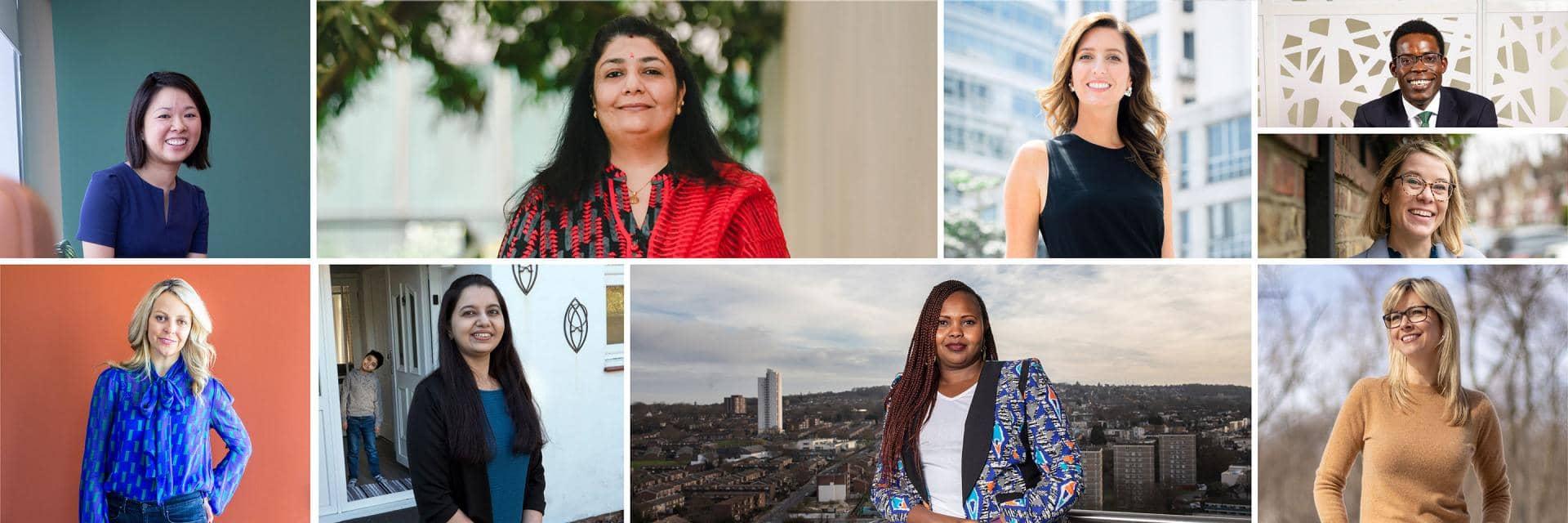
Culture
Barclays colleagues on celebrating International Women’s Day
08 March 2021
To mark International Women’s Day, 10 colleagues from around the globe share how Barclays is promoting gender diversity in the workplace – from encouraging women into senior leadership roles to challenging misconceptions of what a banker looks like.
As part of the bank’s commitment to increase gender diversity, Barclays has made encouraging progress in creating opportunities for female talent over the past year. From offering mentoring, sponsorship and leadership programmes to appointing diversity champions across the business – the bank’s recently published Diversity and Inclusion Report outlines the actions that have been taken.
Here, 10 colleagues share why gender diversity in the workplace matters – and what International Women’s Day (IWD) means to them.
Choosing to challenge
Looking back at the start of her career 20 years ago, Kristin DeClark, Barclays Co-Head of Equity Capitals in the Americas, is amazed at how much things have changed for women in banking.
“When I started in this business 20 years ago, to me and to my generation of women coming into the industry, a banker in most cases was male, played golf and didn’t take time off when they had children,” she says.
“There just weren’t very many senior women that had the flexibility that we’re starting to see in investment banking today. We’re at a place now where the focus on diversity is not because it’s a check in a box: it’s about a recognition of the importance of diversity of thought.”

Kristin DeClark is Barclays’ Co-Head of Equity Capitals in the Americas.
We’re at a place now where the focus on diversity is not because it’s a check in a box: it’s about a recognition of the importance of diversity of thought.
Barclays Co-Head of Equity Capitals in the Americas
For Alexa Mbugua, who worked as a Chemical Engineer before joining Barclays’ HR Operations in the UK, the events of 2020 which “brought inequalities to light” gives IWD 2021’s theme – ‘choose to challenge’ – even greater importance.
“This is the right time to have a conversation and to challenge a lot of things,” she says. “When I started my career as an engineer, I frequently walked into rooms where I was the youngest, I was the only female and I was the only black person – and that was not an easy thing to navigate.
This is the right time to have a conversation and to challenge a lot of things.
Barclays HR Operations, UK
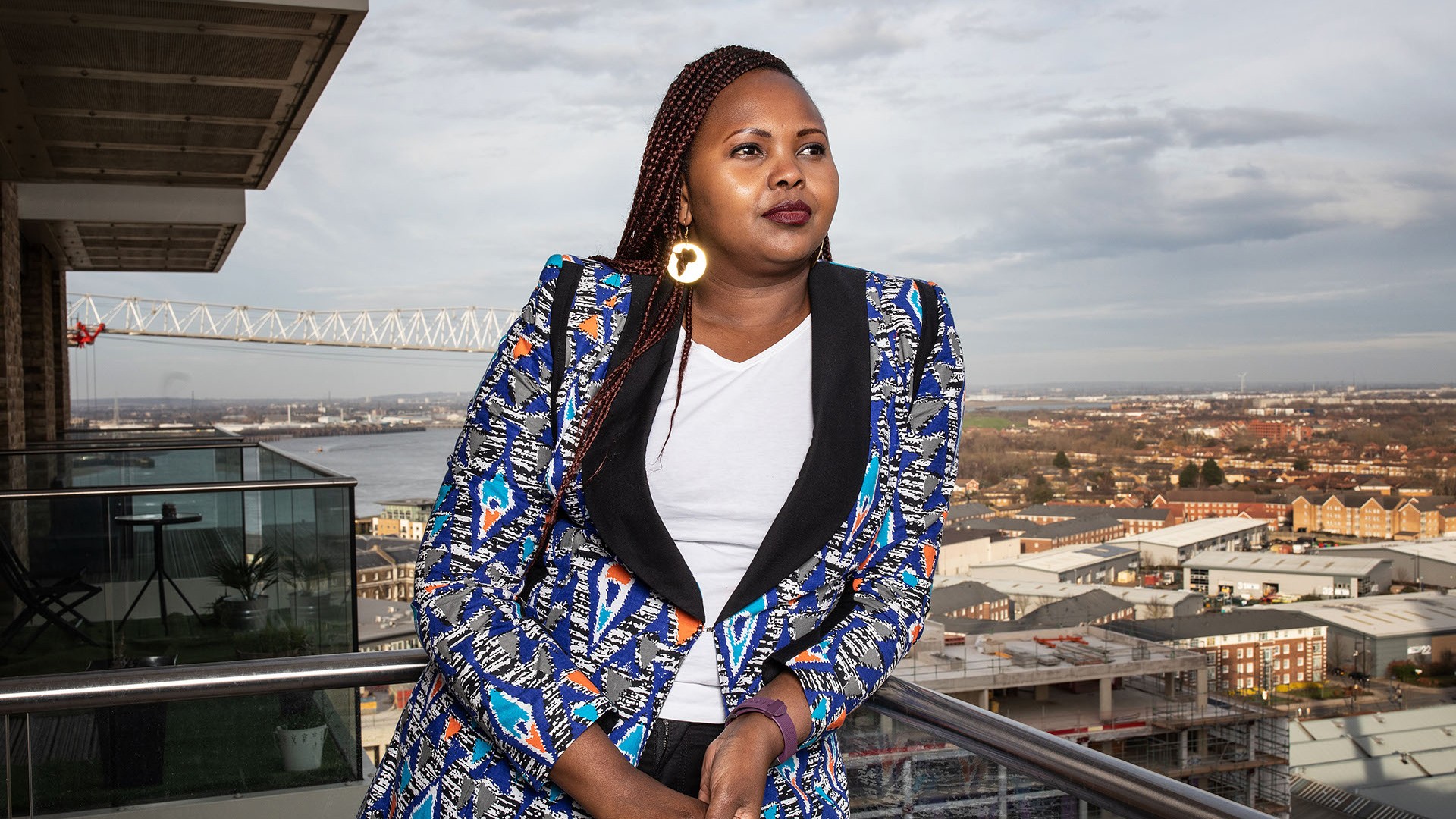
Alexa Mbugua works in Barclays HR Operations in the UK.
“The more I see people who look like me in the workplace, and women at a senior level, the more I think, ‘I could get there’. Women are 50% of the world, so we want the workplace to reflect the reality of the world.”
Mbugua says it’s important to challenge preconceptions of who a job role is for. “It’s that idea of what does an engineer look like? What does a consultant look like? We shouldn’t be labelled, especially with terms like ‘career woman’ – there’s no such thing as a ‘career man’, so what does that actually mean?”
Jo Chan, Chief Financial Officer, APAC and Co-Chair of Barclays' multigenerational colleague network, Embrace APAC, who is based in Singapore, shares a similar experience. “Most people would meet me for the first time and say, ‘Oh, you weren't what we're expecting’,” she says. “Perhaps my English accent against my Asian face confused them, or I've got quite a bubbly personality and I'm an accountant, or I'm actually quite loud for someone that's tiny in size.
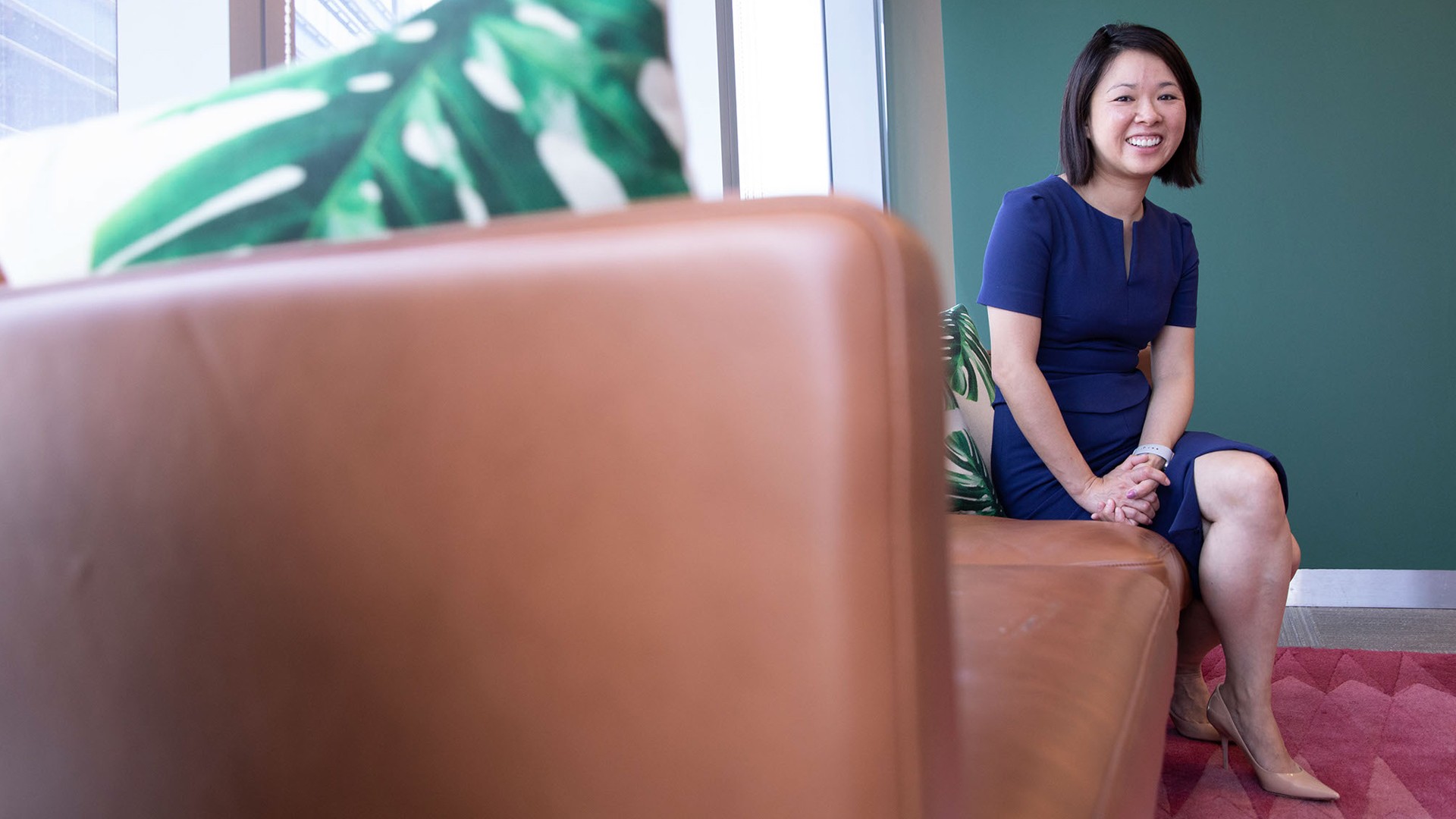
Jo Chan is Barclays CFO APAC and Co-Chair of Embrace APAC in Singapore.
Everybody has to take part and half of this equation is obviously all the men out there. They are the strongest allies.
Barclays CFO APAC and Co-Chair of Embrace APAC
“We have to quash and change those perceptions. We have to stop presuming what someone is like before you ever meet. You can never know what they've gone through other than asking them.”
Kate McGoey, LifeSkills Senior Programme Manager, UK, agrees, adding: “The more we celebrate women's uniqueness and their contribution to the world, the more we're helping to light a path for others who may not have felt as though those options were open to them. I think it's so important that we celebrate the achievements of all women – women of different cultures, different races, shapes and sizes, because there really is more than one kind of woman who gets to be successful.”
The more we celebrate women's contribution to the world, the more we're helping to light a path for others who may not have felt as though those options were open to them.
LifeSkills Senior Programme Manager, UK
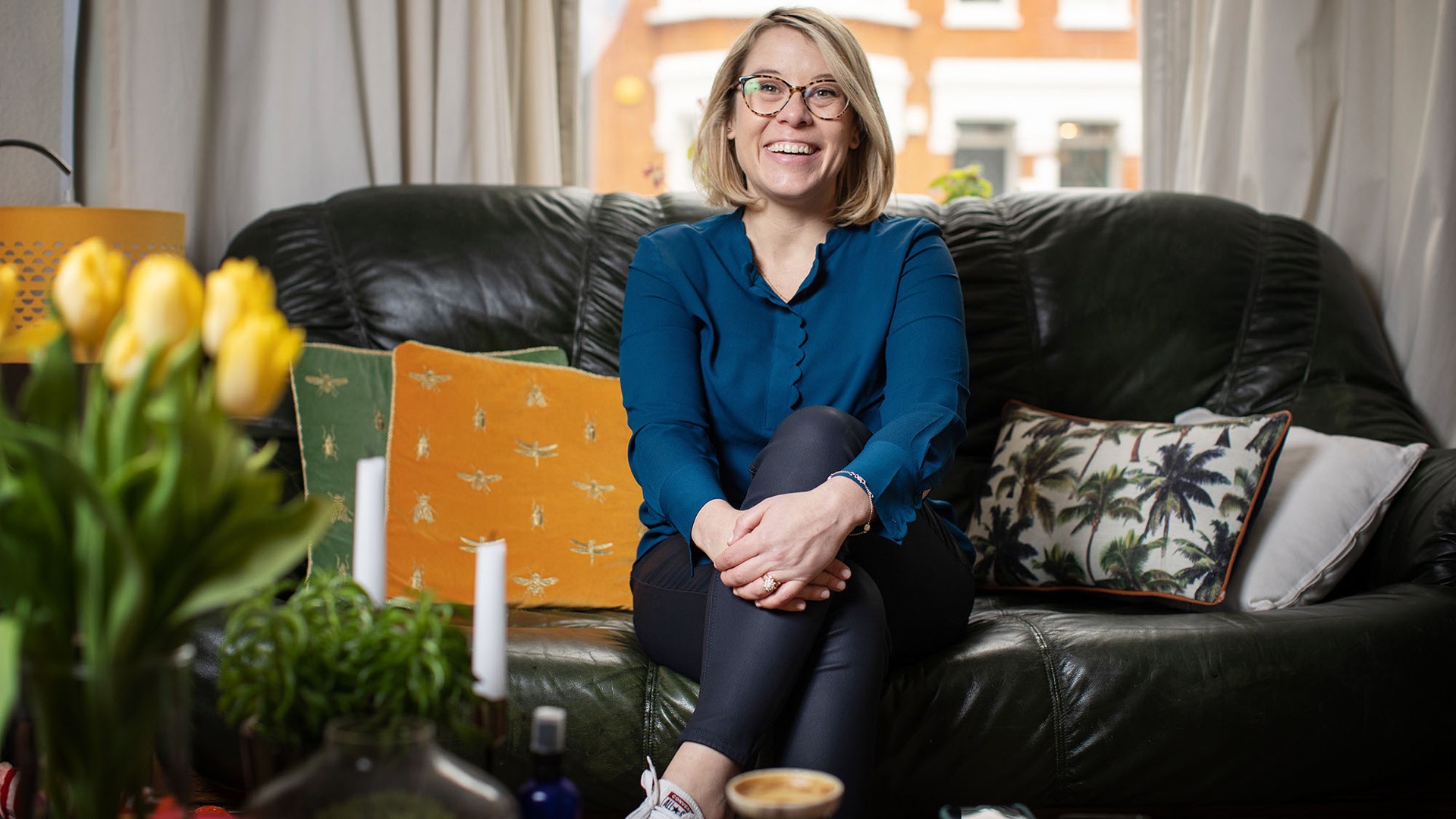
Kate McGoey is Barclays’ LifeSkills Senior Programme Manager in the UK.
Nella Goodarzi, Europe's Chief of Staff at Barclays, echoes this sentiment. “Calling out women’s successes can inspire the person sitting at home thinking, ‘I could never work in a bank’ or, ‘I could never be a trader’,” she says. “No, actually, you can. You can be anything you want to be.”
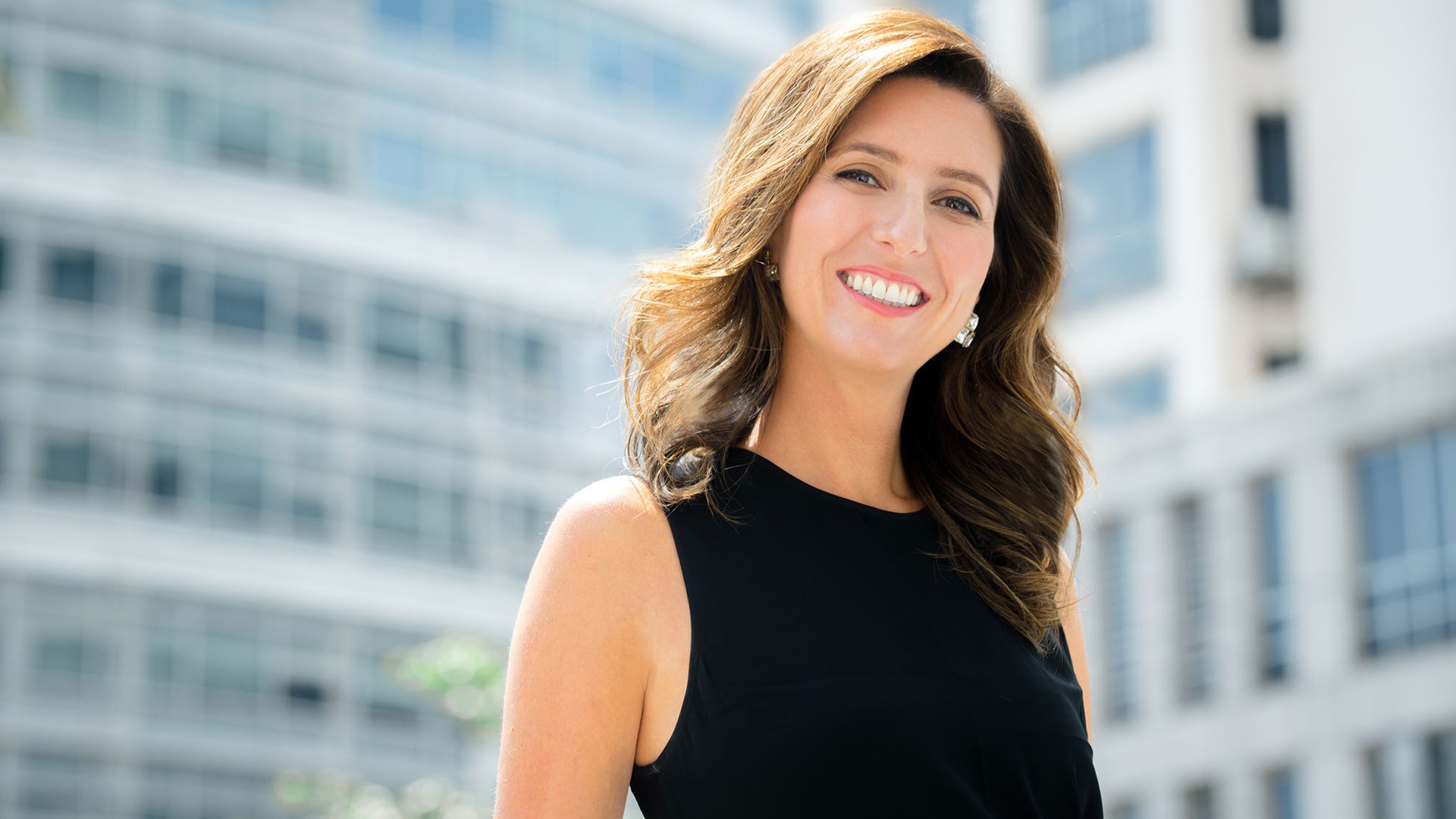
Nella Goodarzi is Europe's Chief of Staff at Barclays.
Calling out women’s successes can inspire the person sitting at home thinking, ‘I could never work in a bank’ or, ‘I could never be a trader’. Actually, you can be anything you want to be.
Europe's Chief of Staff, Barclays
“Female role models are equally important for boys”
Reeti Sharma, Finance Business Management, India, who has been with the bank for over 13 years, says International Women’s Day is an essential annual milestone. “I think acknowledging the achievements of women plays a vital role in promoting diversity further,” she says.
“Acknowledging the successes and celebrating the victories: it acts as an inspiration. It also helps instil confidence in others, so that next time an opportunity is there, there are more women who are ready to put their hands up.”
Acknowledging the successes and celebrating the victories: it acts as an inspiration. It also helps instil confidence in others, so that next time an opportunity is there, there are more women who are ready to put their hands up.
Finance Business Management, India

Reeti Sharma works in Finance Business Management, India.
Anchita Chaturvedi, Technical Product Owner at Barclays, moved from India to the UK with her husband and son six years ago. Having taken a career break after her son was born, she says she’s glad to be back working. “I like the fact that my son sees a mother who has an individual mindset and that strong approach,” she explains.
“He sees mum and dad helping each other, he sees mum working and making decisions – I think that's really important. Because in making all these little changes that we do, we start shaping the future for the next generation. It’s not just important for girls to have those role models, it's equally important for boys.”
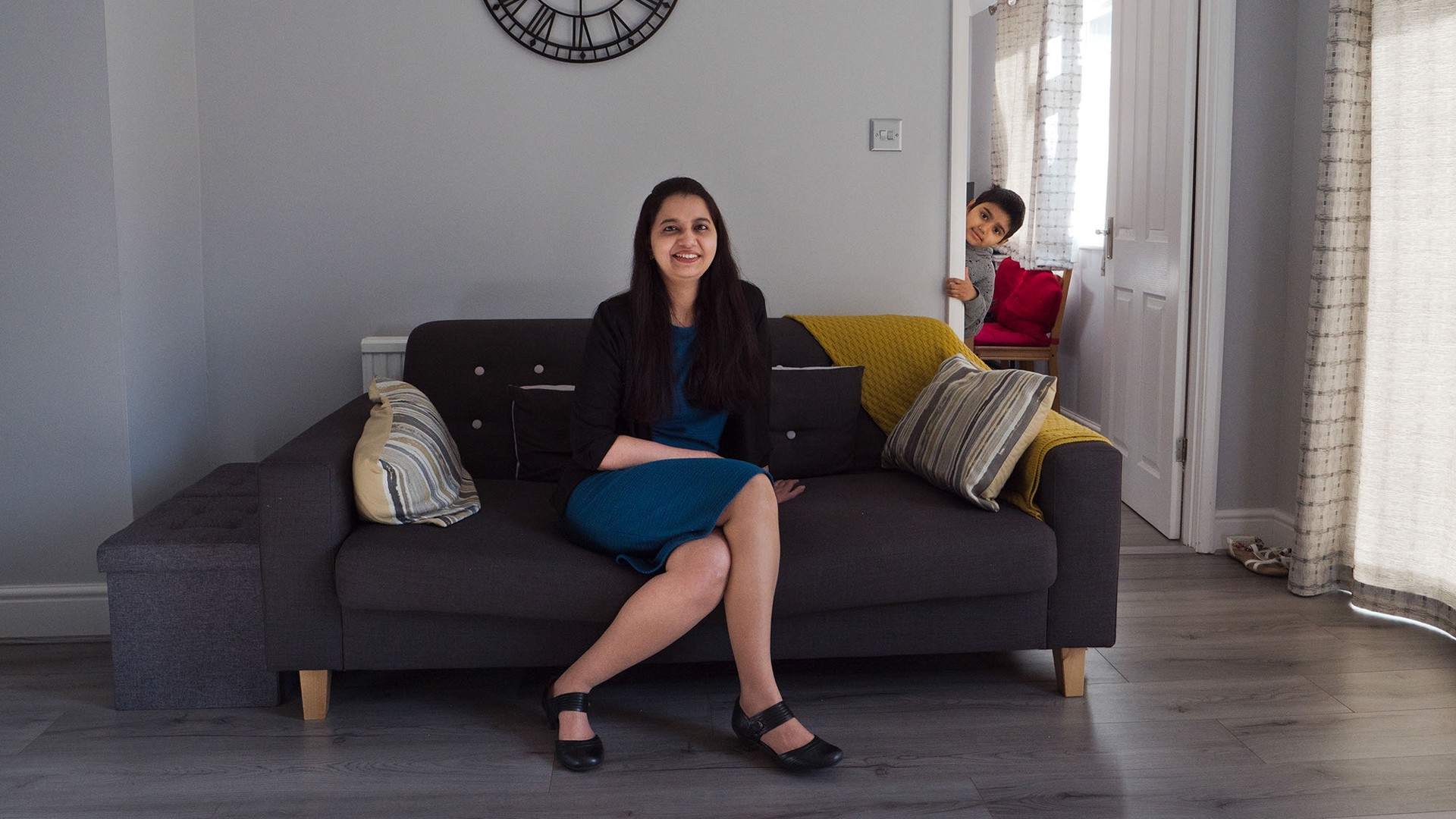
Anchita Chaturvedi is a Barclays Technical Product Owner in the UK.
It very important for children to see a mother who has an individual mindset. It’s not just important for girls to have those role models, it's equally important for boys.
Barclays Technical Product Owner, UK
Jo Chan agrees, adding that male allies are essential to achieving gender diversity in the workplace and wider society: “Everybody has to take part and half of this equation is obviously all the men out there. They are the strongest allies.”
“There’s more than one kind of woman who gets to be successful”
David Farrow, who heads Barclays’ International Corporate Banking team in the UK, says this year’s IWD theme highlights the need for proactivity. “The drive that we’re having in the bank to create a more inclusive culture has made me think a lot about how being passive and saying, ‘I haven’t got a problem in my world’, is not good enough,” says Farrow. “Promoting the wellbeing and career prospects of all of our colleagues has never been more important.”
Being passive and saying, ‘I haven’t got a problem in my world’, is not good enough. Promoting the career prospects of all of our colleagues has never been more important.
Head of Barclays International Corporate Banking, UK
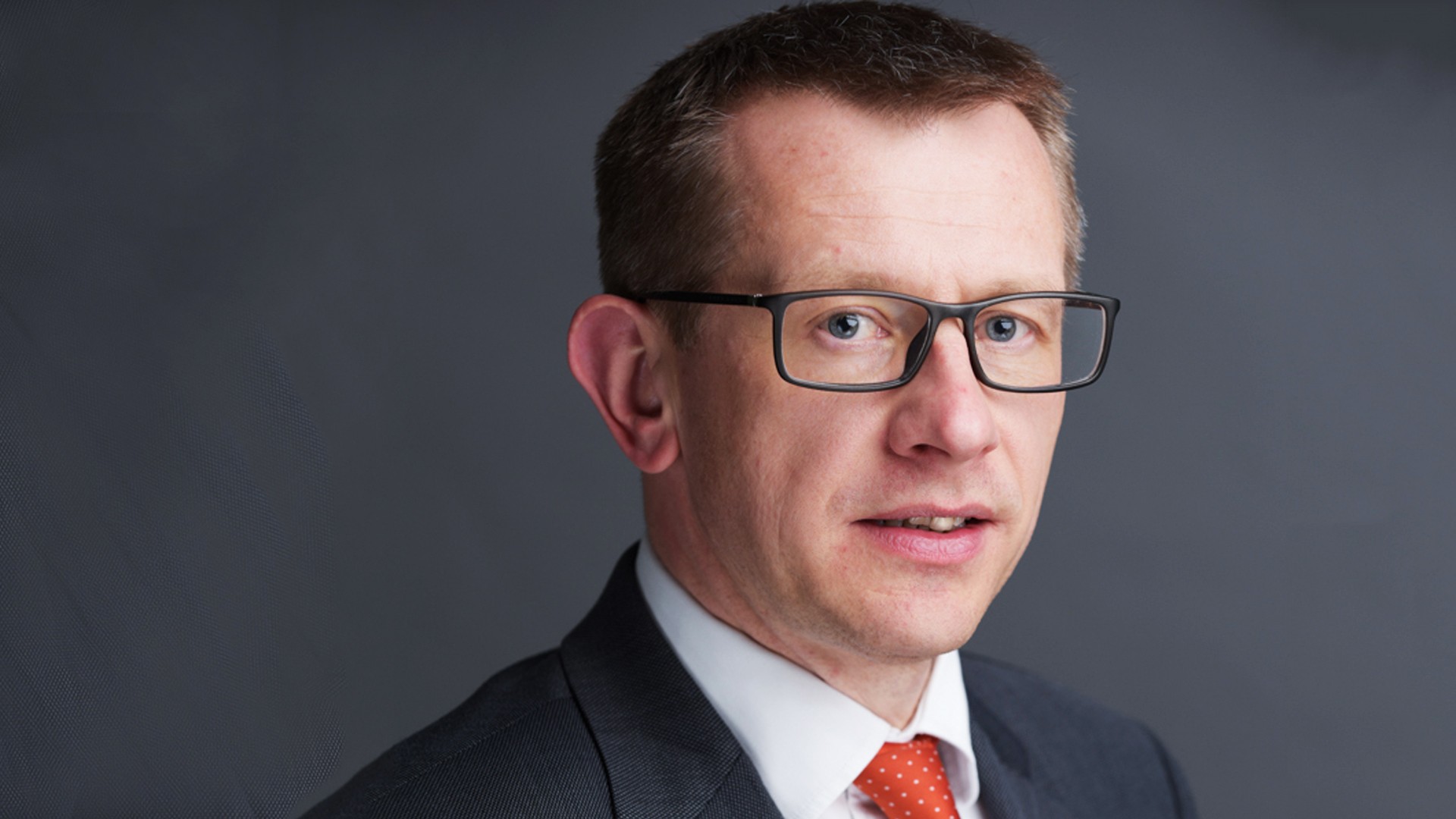
David Farrow is Head of Barclays International Corporate Banking in the UK.
Toks Sotande-Peters, Barclays’ Corporate Banking Relationship Director and Co-Chair of the bank’s Black Professionals Forum, said he joined the bank because “I saw as an external person that people from various backgrounds were championed, and I thought Barclays could provide me with a better home to progress my career”. He adds: “That’s why it’s so important to recognise the achievements of female colleagues – to show that Barclays is the place for the best female talent.”
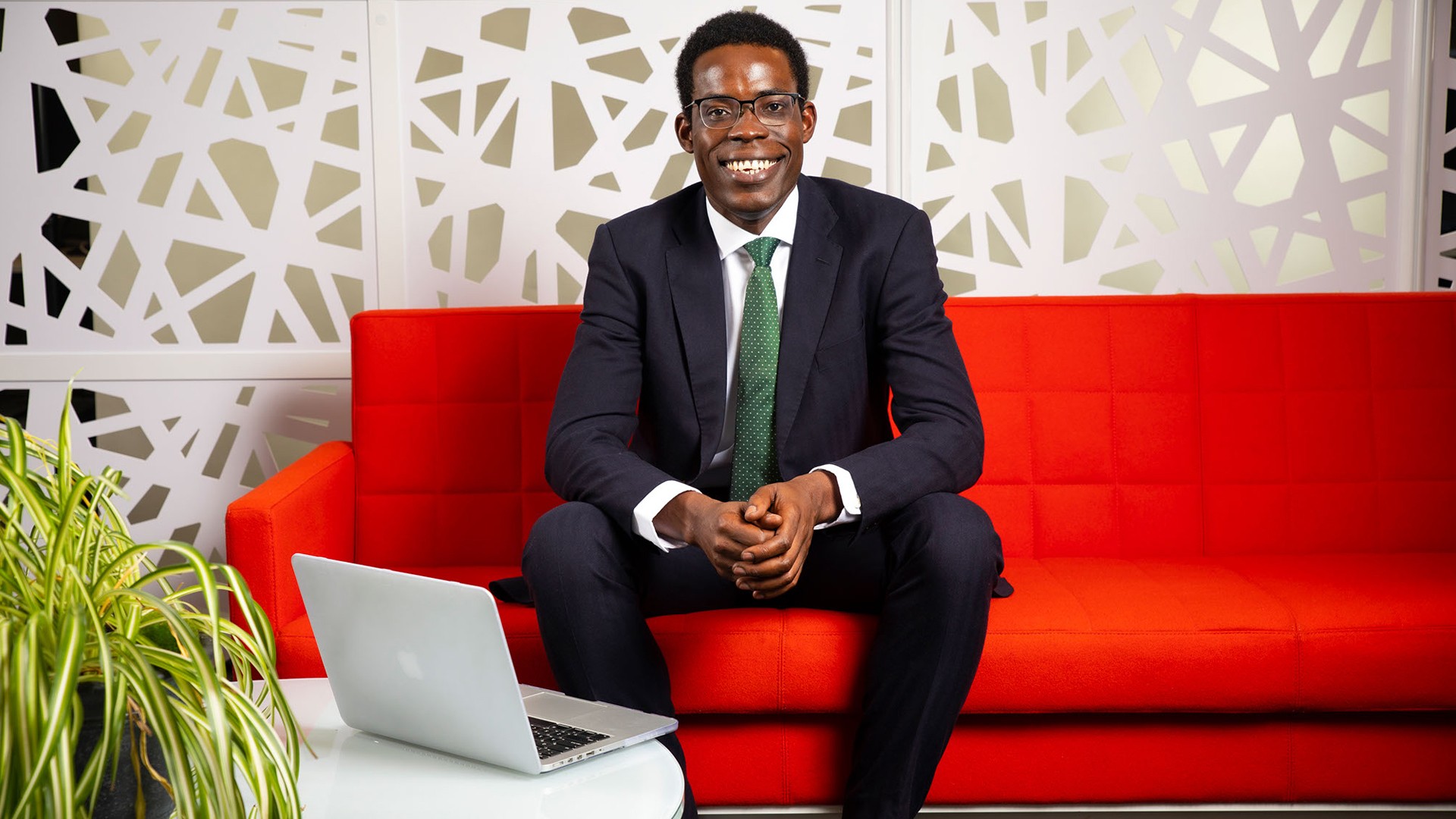
Toks Sotande-Peters is a Barclays Corporate Banking Relationship Director in the US.
It’s so important to recognise the achievements of female colleagues – to show that Barclays is the place for the best female talent.
Barclays’ Corporate Banking Relationship Director and Co-Chair of the Black Professionals Forum
“We have so much support from Jes Staley and from all of the leaders across Barclays,” says Anita Coppola, Business Engagement Lead for Enterprise Technology in the US, who believes this year’s theme is about “becoming CEO of your own career”. She says: “It's part of our company culture that we celebrate and continue to build our diverse talent pipelines.”
We have so much support from Jes Staley and from all of the leaders across Barclays. It's part of our company culture that we celebrate and continue to build our diverse talent pipelines.
Business Engagement Lead for Enterprise Technology, US
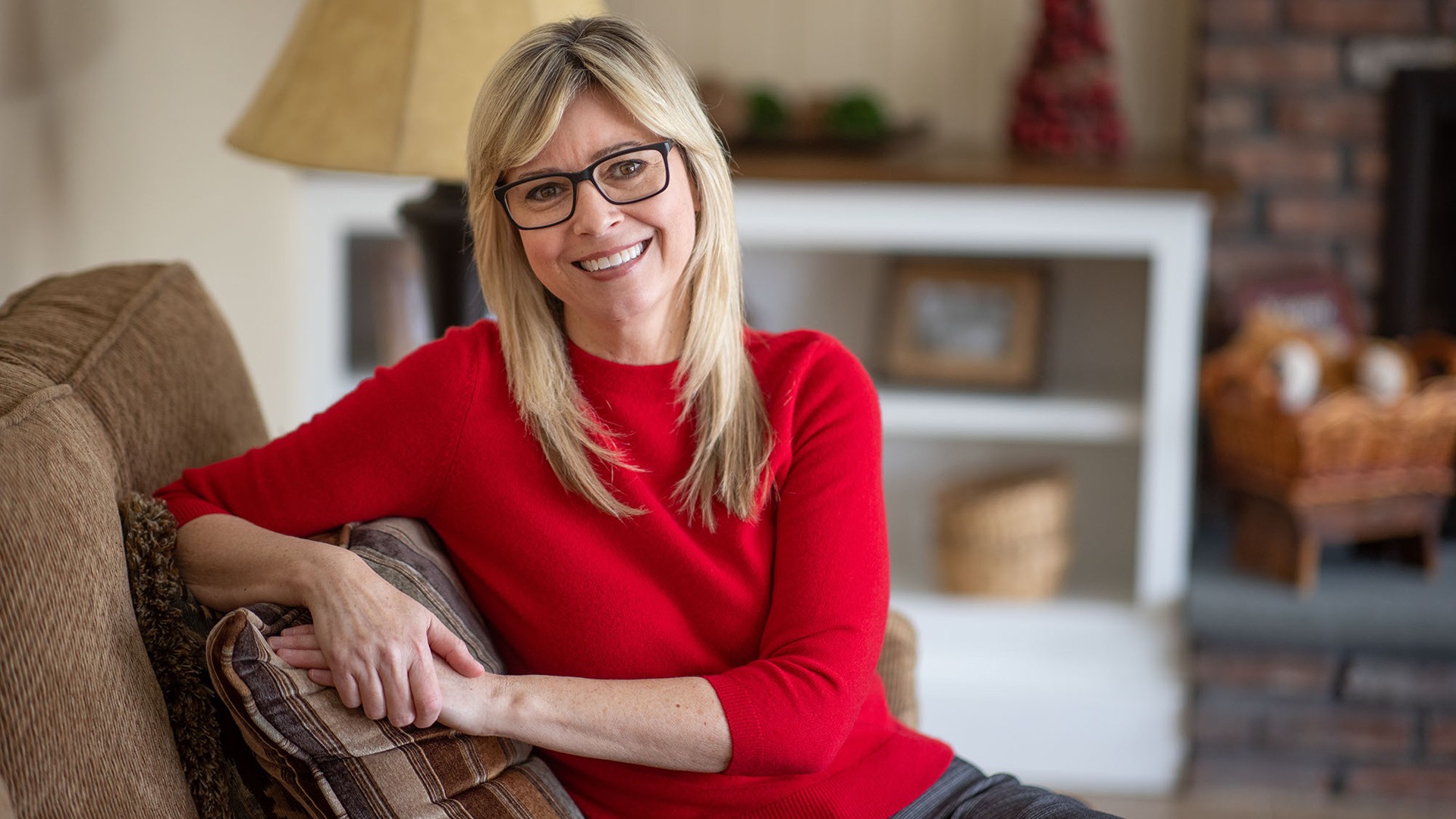
Anita Coppola, Business Engagement Lead for Enterprise Technology, US.
Reflecting again on how far she and other women have come in the past two decades, DeClark says: “I never got very good at golf and I certainly don’t follow college sports – but I have been authentic to myself. Having three children before I was promoted to managing director has made me better at my job because I’m fulfilling my personal goals at the same time as fulfilling my professional goals.
“In the last 20 years, the stuff that I’ve seen in the industry broadly, and specifically here at Barclays, have been pretty incredible. Tackling gender equality is ultimately in the best interests of all of us.”
Barclays’ diversity and inclusion agenda
Barclays aims to foster a culture where individuals of all backgrounds feel confident in bringing their whole selves to work, feel included and have their talents nurtured, empowering them to contribute fully to the bank’s vision and goals.
The bank’s agenda includes five pillars of focus: Disability, Gender, LGBT+ (Lesbian, Gay, Bisexual and Transgender), Multicultural and Multigenerational. Under the gender agenda, the bank supports women in the workplace through initiatives including sponsorship and mentoring, and colleague diversity networks – Win, the gender network and the Barclays Working Families Network.
Read more in Barclays’ Diversity and Inclusion Report 2020.
